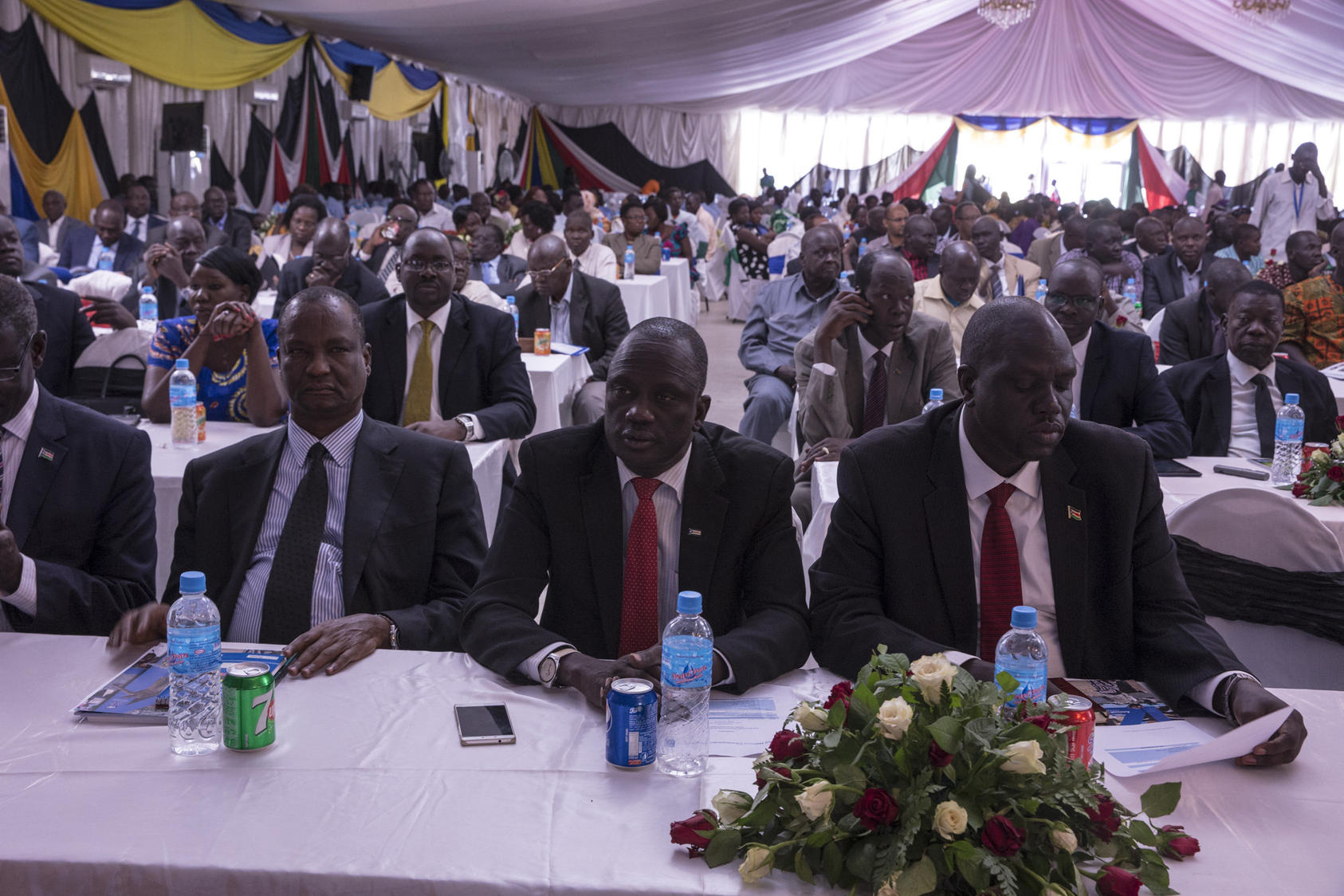The Comprehensive Peace Agreement installed an interim constitution for Sudan and Southern Sudan. In the wake of South Sudan's secession, both countries are undertaking constitutional review processes, although the endeavors have suffered from lack of inclusivity, transparency, participation, and political will, leaving north and south without permanent constitutions to guide their national policies.

Sudan
Sudan currently operates under an Interim National Constitution, which needs to be replaced following South Sudan’s secession. While the need for a permanent constitution is widely acknowledged, little is known about how the government will conduct such an exercise - who will be included? How widely will the public be consulted? How long will the process take? What issues will be on the table?
In 2011, USIP began convening Sudanese civil society organizations from the 15 states to discuss how civil society might mobilize itself to increase its voice in the anticipated constitutional review. This effort led to the creation of the Sudanese Initiative for Constitution-Making (SICM), a network of more than 40 nongovernmental organizations. Presently, USIP is supporting SICM to:
- Conduct projects and engage in outreach activities to educate the public and the international community about constitutions, constitutionalism, and the importance of engaging in the constitution-making process.
- Provide policy options to the Government of Sudan to design and implement an inclusive, participatory, and transparent constitution-making process.
Learn more about the Sudanese Initiative for Constitution-Making >>
South Sudan
On the verge of independence, South Sudan amended its interim constitution and accepted a transitional constitution to support the rights, duties, powers, and institutions of a sovereign state. After independence, South Sudan pledged to undertake a second constitutional review -- one that is expected to be longer in duration, more comprehensive in scope, and more inclusive and participatory in nature.
Although South Sudan's constitutional review has stalled, USIP is closely monitoring developments and actively seeking opportunities to support the Government of South Sudan in designing and implementing a constitution-making process that is inclusive, participatory, and transparent so as to achieve a permanent constitution that is deemed legitimate in the eyes of the South Sudanese people and contributes to South Sudan's development of democracy, constitutionalism, and the rule of law.
<< Back to Constitution Making and Rule of Law in the Two Sudans